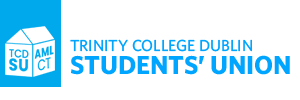
The University Board has De-Named the X Library!
On 26 April 2023, the University Board of Trinity College Dublin voted to dename the library currently bearing the philosopher George Berkeley’s name, a former slave-owner and vocal proponent of slavery. It will soon launch a community consultation to choose a new name.
Opened in 1967, the library was named in 1978 after George Berkeley, the world-renowned philosopher and former Librarian at Trinity. Berkeley published some of his most important philosophical works while at Trinity in the 1700s. He bought slaves – named Philip, Anthony, Edward and Agnes Berkeley – to work on his Rhode Island estate in 1730-31, and sought to advance ideology in support of slavery.
Today’s decisions were taken by the University’s Board following several months of research, analysis and public consultation overseen by the Trinity Legacies Review Working Group. Trinity decided that the continued use of the Berkeley name on its Library building is inconsistent with the University’s core values of human dignity, freedom, inclusivity and equality.
Slavery is not a thing of the past. Right now, almost 50 million people are trapped in slavery worldwide. What is modern slavery?
If you're interested in learning more about the Trinity Colonial Legacies Project, click here.
Background
“Philip, Anthony and Agnes Berkeley were the property of George Berkeley, formerly a fellow at Trinity College Dublin and Dean of Derry in the Church of Ireland on his Rhode Island estate in the late 1720s. Berkeley was resident in Rhode Island from 1728, where he had acquired a plantation while setting plans in motion for a colonial university in Bermuda intended to educate missionaries to proselytise amongst the Native American population.”
- Memo From Vice Chancellor Mary McAleese, on behalf of the Trinity’s Colonial Legacies Advisory Board, addressed to Linda Doyle, Provost, March 2022.
Trinity’s main library was named in 1978 after the philosopher George Berkeley, whose history as a slave-owner has since been well documented. The Rename the Berkeley Campaign is a grassroots effort from students troubled by his presence within college. The Berkeley Memorial Window in the College Chapel, medals which are named after him, and most notably, the Berkeley Library. The Students' Union has and always will support any efforts College makes towards Equality, Diversity and Inclusion, but to ignore something so pivotal is to undermine any efforts made.
On Feb 22nd 2022, TCDSU voted to support a grassroots petition to rename the library. On August 23rd 2022, TCDSU de-named the Berkeley Library in all of its communications. Until the library is re-named by College, it will be referred to as The X Library in all TCDSU Communications.

